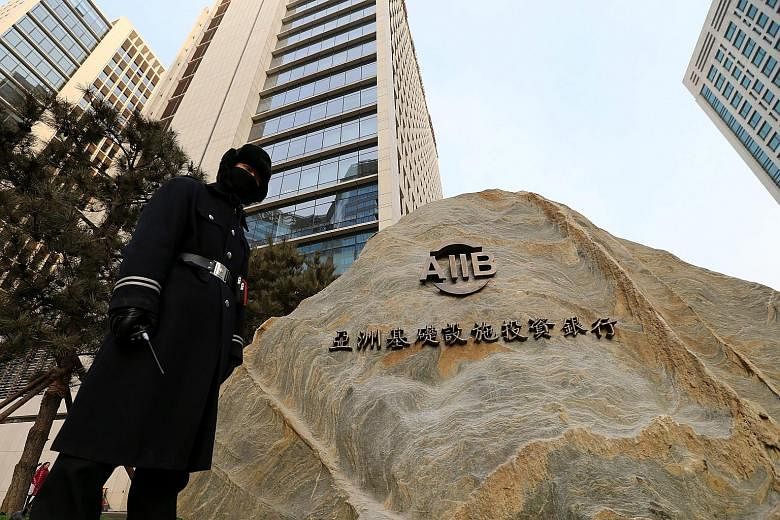The Asian Infrastructure Investment Bank (AIIB) is a Beijing-led initiative meant to help finance infrastructure projects across Asia.
First proposed by President Xi Jinping about two years ago, it now has 57 member countries - including Singapore as a founding member. It was launched last June with a registered capital of US$100 billion (S$144 billion).
Under the AIIB's voting structure, China holds over a quarter of the votes, giving it veto power on major decisions such as choosing the bank's president, providing funding outside the region and allocating the bank's income. This is, however, unlikely to affect day- to-day operations, which will be managed by a multinational team.
China's former vice-finance minister, Mr Jin Liqun, who heads the bank, said he expects the institution to lend between US$10 billion and US$15 billion a year for the first five or six years.
The Asian Development Bank (ADB) has put Asia's infrastructure demand at up to US$730 billion a year by 2020.
The AIIB is one of three entities China is promoting, along with a joint Brics Development Bank with Brazil, Russia, India and South Africa and a Silk Road Fund that aims to revive Chinese commercial ties in South and Central Asia. They would join existing bodies, including the ADB, World Bank and Inter-American Development Bank, in offering finance to developing nations.
Esther Teo

